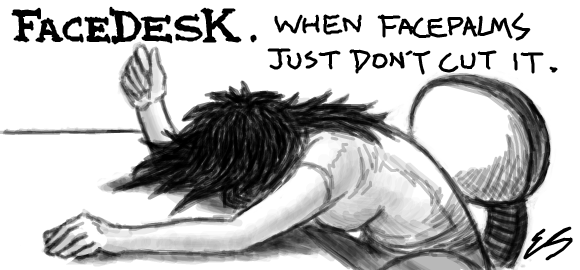In some respects hardware support is better under Linux than Windows with mainstream distros. You certainly have better support for many 'legacy' devices and printers. And it was nice plugging in a Canon USB scanner and having it just work with Mint recently. Which was surprising since the software Canon supplied with the device was a nightmare to get installed and working properly under XP.
But Barney raises a significant point which I'll risk summarizing as : Once burned - twice shy. And that is one PR issue the Linux world needs to deal with far better than it has to date.
Unfortunately, for the Linux community, Ubuntu's way of dealing with it is by
distancing itself from the larger Linux community. If you go to their current homepage they now refer to their product as
The Ubuntu Operating System. Not Linux-based Ubuntu. Just the Ubuntu operating system:
Fast, secure and stylishly simple, the Ubuntu operating system is used by 20 million people worldwide every day.
Want to know how they explain why it's free? See below - notice there's no mention up front about the FSF - but there
is mention of IBM, Google, Wikipedia, and Mozilla.
Ubuntu is brilliant. It's no wonder our users ask how all this can be free. The answer is simple.
It’s open source.
Our global community is made up of thousands of people who want to help build the best open-source operating system in the world. They share their time and skills to make sure that Ubuntu keeps getting better and better. From IBM to Google, Firefox to Wikipedia – some of today's best software is based on an open-source model. Shared efforts. Shared principles. No cost.
If you follow the
llnk for more information, you get a page where Ubuntu provides a summary of open source principles and philosophy which they refer to as
Our Philosophy. And also make mention of
their (as in
Ubuntu's) global community. True, there are links to the FSF and OSI buried further down 'below the fold.' But again, this is another example of Ubuntu assuming ownership (or strongly implying their ownership) of something it would have been more honest to say they
adopted or
embraced.
ZD's Steve Vaughan-Nichols did an
op-ed piece recently where he looked at this phenomenon. He concludes that it's simply a pragmatic response to dealing with a negative public perception that can no longer be changed:
You see this isn't about reality. It's about perception. Canonical and Google rather than try to fight how Linux is seen by most people and the Microsoft trolls who do their best to keep the Linux lies alive, have chosen to dodge the Linux brand issue entirely.
Hence, Google emphasizes Android and Chrome OS and Canonical talks about Ubuntu. They're doing this because this works. By doing this, they avoid all the negative FUD that Microsoft fans and trolls keep throwing at Linux and they get to set the conversation. My wife, Clara Boza, a branding expert and former CMO, tells me that this is smart marketing and that it works. Given Android's success and that Chrome OS and Ubuntu seem to be among the most popular Linux distributions, I think she's right.
He then goes on to say:
For those of who are Linux fans, it's annoying. We should keep in mind though that the end goal is getting Linux into the hands of users. If they happen to call it Android, Chrome OS, or Ubuntu is that really such a bad thing? I don't think so.
Actually, it
is a bad thing. Very bad. It fragments the larger community and undermines the social contract. And it also sets the stage for Canonical, Red Hat (and more recently SUSE) to start doing things like cut their own separate deal (or planned deal) with Microsoft to address UEFI/SecureBoot concerns.
But all this has been previously discussed at DoCo, and the current moves towards accommodating Microsoft are better left for a separate thread.
And I'm really starting to get quite disgusted about all this, so I'm gonna stop writing for now.

Later!


